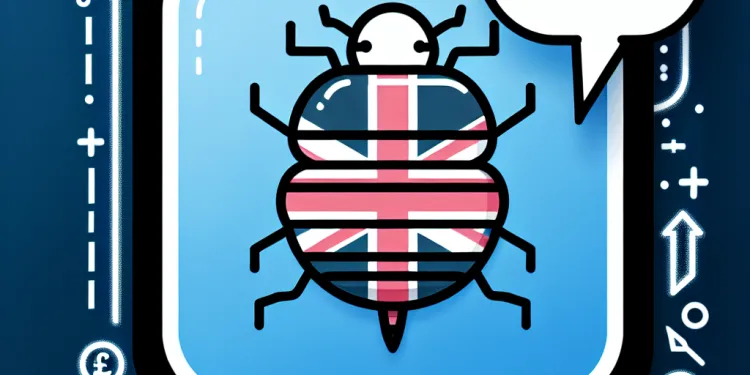
Find Help
More Items From Ergsy search
-
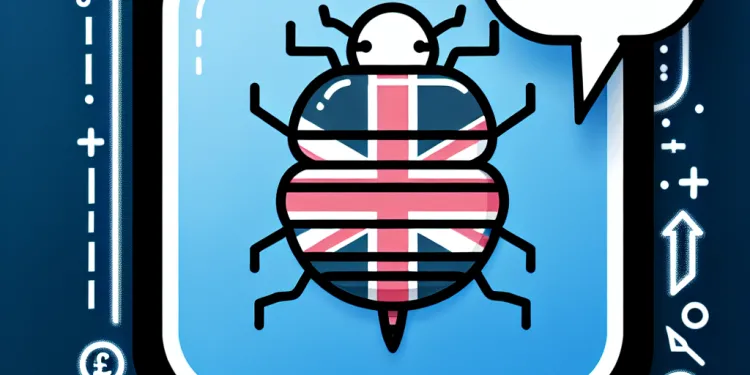
Can screw worm infestations be prevented?
Relevance: 100%
-

How are screw worm infestations treated?
Relevance: 91%
-

How do screw worms infest their hosts?
Relevance: 90%
-

What are the symptoms of a screw worm infestation?
Relevance: 90%
-
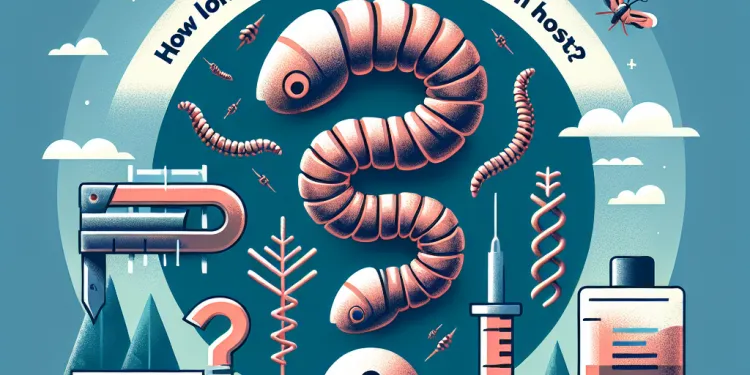
How long do screw worm larvae typically infest a host?
Relevance: 82%
-

Are screw worms dangerous to humans?
Relevance: 78%
-
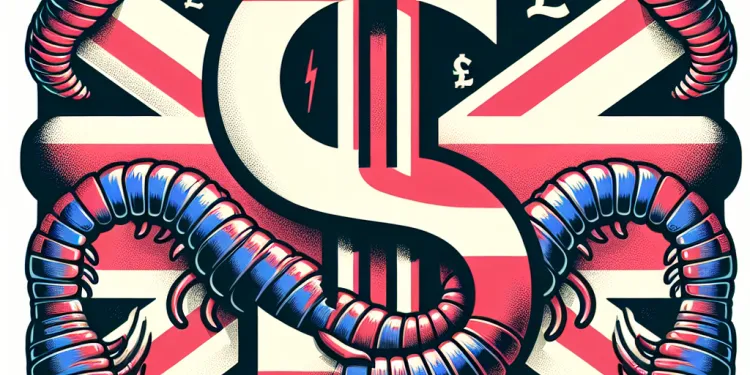
What are Screw Worms parasites?
Relevance: 77%
-
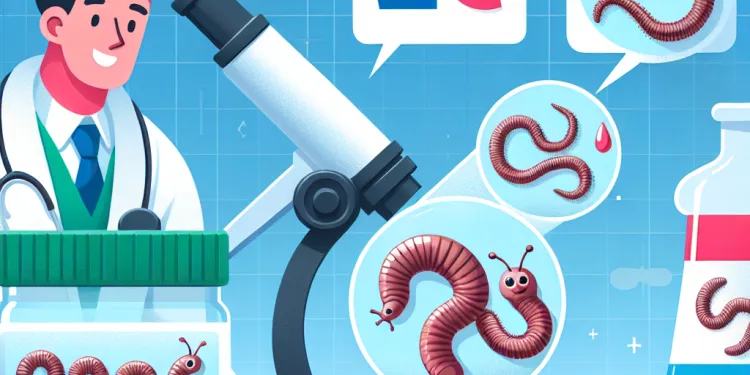
Can screw worms cause zoonotic disease?
Relevance: 74%
-
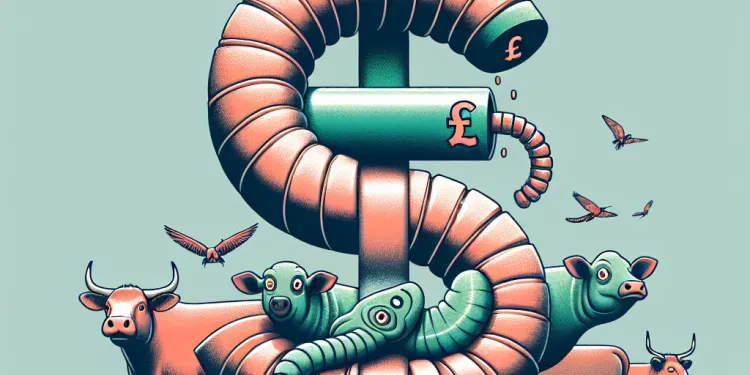
What impact do screw worms have on livestock?
Relevance: 73%
-
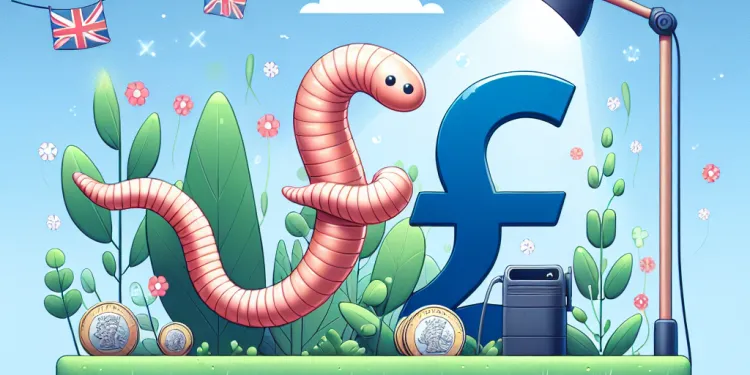
How do screw worms reproduce?
Relevance: 73%
-

Are there any natural predators of screw worms?
Relevance: 71%
-

Where are screw worms found geographically?
Relevance: 70%
-

What methods are used to control screw worm populations?
Relevance: 69%
-
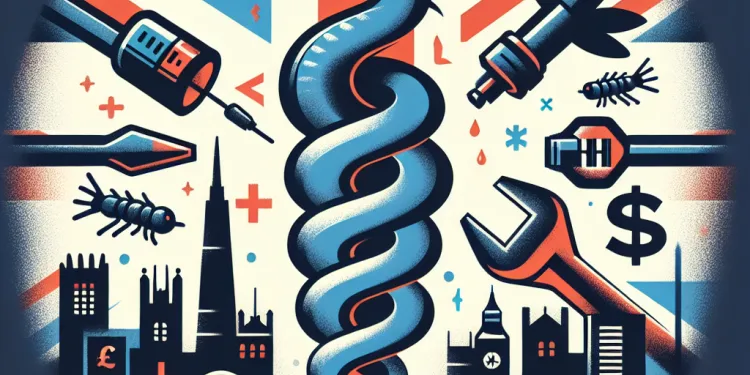
What measures are taken during a screw worm outbreak?
Relevance: 68%
-

Has the screw worm been eradicated in some areas?
Relevance: 65%
-

What species of flies produce screw worms?
Relevance: 63%
-

What animals can be affected by screw worms?
Relevance: 48%
-

What economic impact do screw worms have?
Relevance: 47%
-

How can individuals help in the fight against screw worms?
Relevance: 44%
-
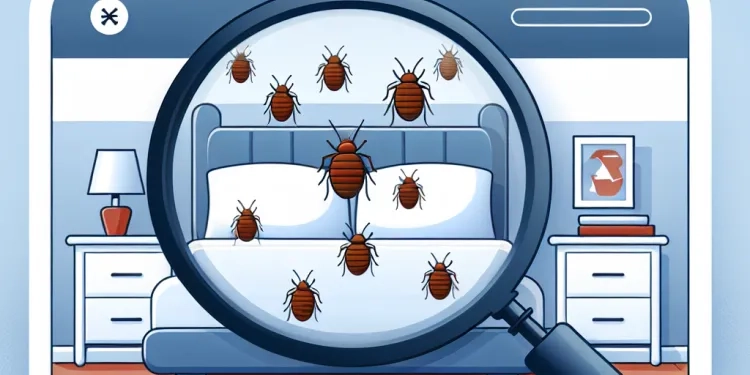
What are the signs of a bed bug infestation?
Relevance: 30%
-

Why is screw worm eradication important?
Relevance: 24%
-

How can I prevent bringing bed bugs into my home?
Relevance: 21%
-
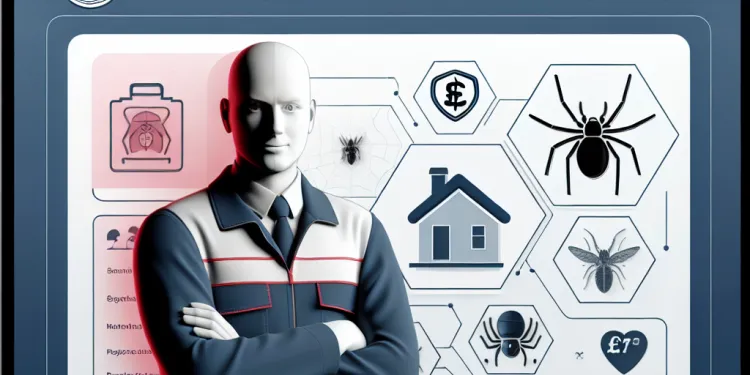
Is professional pest control needed for spiders?
Relevance: 16%
-
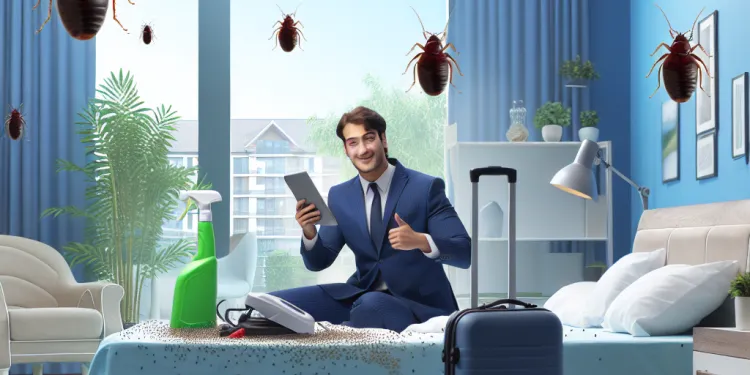
What should I do if I find bed bugs in my house?
Relevance: 16%
-
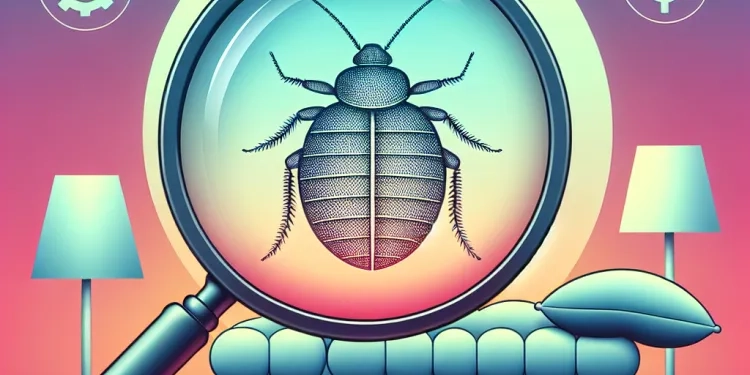
What are bed bugs?
Relevance: 15%
-
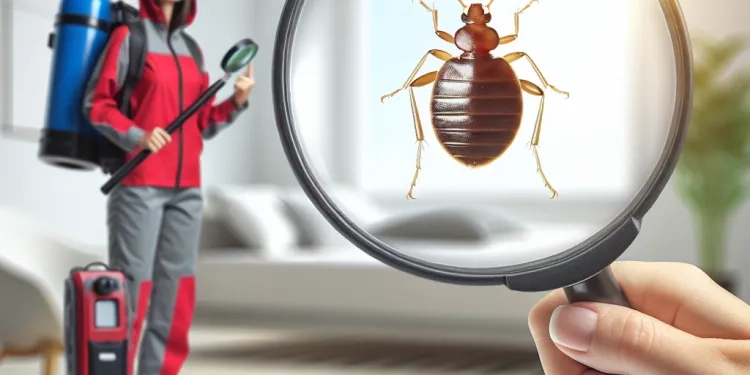
Can I get rid of bed bugs myself?
Relevance: 15%
-
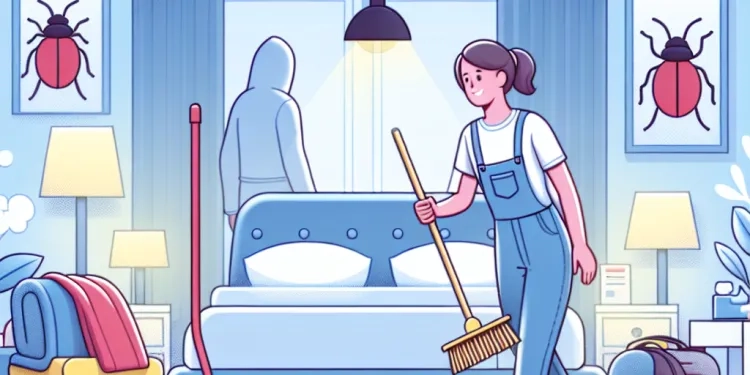
Are bed bugs dangerous?
Relevance: 15%
-

How do you prevent Lyme disease?
Relevance: 14%
-

Bed Bugs / bedbugs
Relevance: 14%
-
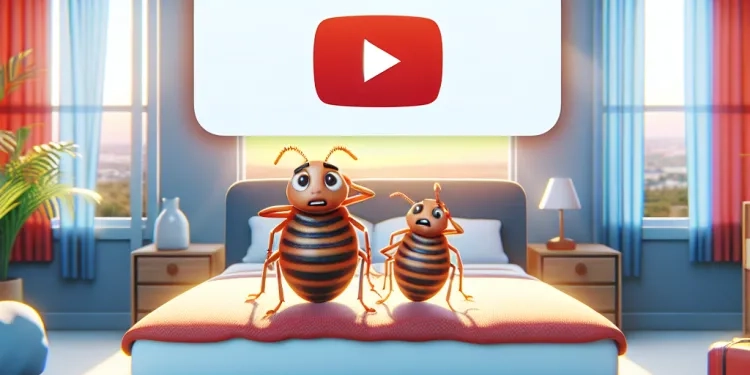
Why are bed bugs so difficult to eliminate?
Relevance: 13%
-
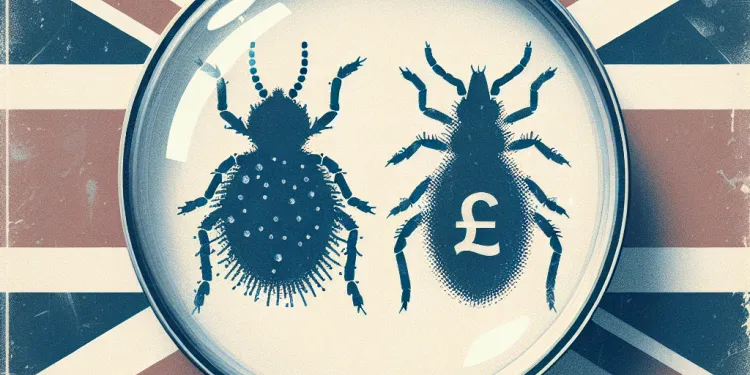
Are nits and head lice the same thing?
Relevance: 13%
-

How do bed bugs enter my home?
Relevance: 13%
-
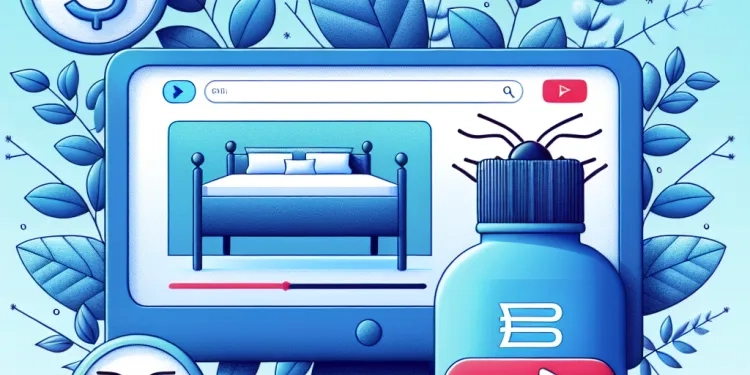
Are there any natural remedies for bed bugs?
Relevance: 13%
-
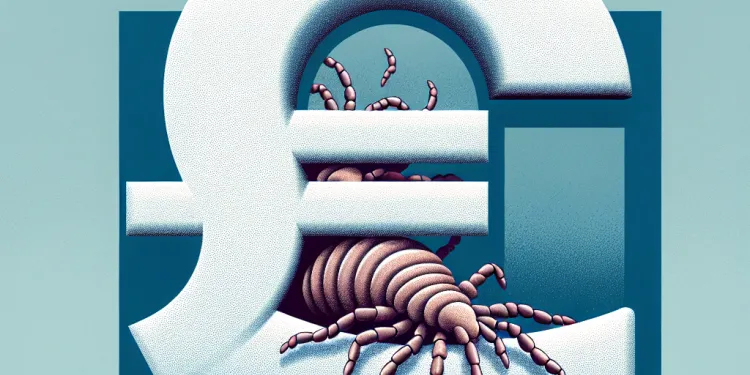
What are head lice?
Relevance: 13%
-

Will disposing of my mattress get rid of bed bugs?
Relevance: 13%
-
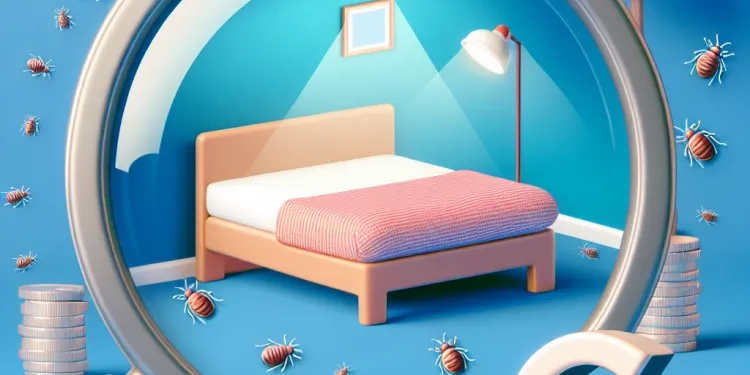
Do bed bugs only live in beds?
Relevance: 13%
-

What items should I wash if I have bed bugs?
Relevance: 13%
-

Can hypotony be prevented?
Relevance: 13%
-
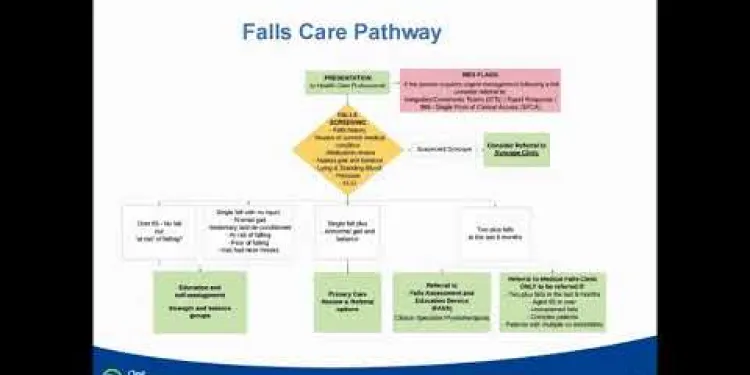
Falls Prevention Podcast
Relevance: 13%
-

Can CFS be prevented?
Relevance: 13%
Introduction to Screw Worm Infestation
Screw worm infestation is a serious veterinary and medical condition caused by larvae of the screw worm fly, which primarily affects warm-blooded animals. While not native to the UK, screw worm infestations can occur via imported animals or goods, posing a potential threat to livestock and pets. Preventing screw worm infestations is essential to protect animal welfare and agricultural economies.
Understanding Screw Worm Flies
Screw worm flies belong to the family Calliphoridae, with the most notorious species being the New World screw worm (Cochliomyia hominivorax) and the Old World screw worm (Chrysomya bezziana). These parasitic flies lay eggs in open wounds or soft tissues of animals. Upon hatching, larvae feed on the host's tissue, leading to severe damage and potentially fatal infestations if untreated.
Preventative Measures in the UK
Although the UK is currently free from endemic screw worm infestation, prevention remains crucial due to international travel and trade. Effective strategies include stringent import controls, public awareness, and biosecurity measures. Defra and other agencies work closely to monitor and regulate imports of livestock and animal products to prevent the introduction of screw worms.
Biosecurity Practices
Enhancing biosecurity on farms is vital in preventing potential screw worm infestation. Farmers should regularly inspect livestock for wounds and implement proper wound care to reduce the risk of attracting flies. Maintaining clean living environments by managing waste and carcasses helps deter breeding conditions for flies.
Surveillance and Early Detection
Early detection of infestations is critical to control spread. The UK has established surveillance systems to promptly identify and report any suspected screw worm presence. This includes training veterinarians and farmers to recognize symptoms and promptly report to authorities for immediate intervention.
Use of Sterile Insect Technique (SIT)
One innovative approach to controlling screw worm populations is the Sterile Insect Technique (SIT), involving the release of sterilized male flies to reduce reproduction rates. While SIT is primarily used in countries where screw worms are endemic, it serves as a potential control method if screw worm flies were introduced to the UK.
Public Awareness and Education
Educating the public and stakeholders about screw worms is essential in preventing infestations. Awareness campaigns inform travelers and importers about the risks and signs of infestation, ensuring they take necessary precautions. Continuous education supports compliance with biosecurity measures and encourages engagement in surveillance efforts.
Conclusion
Preventing screw worm infestations in the UK requires a combination of stringent import controls, enhanced biosecurity practices, early detection systems, and public education. By adopting a proactive approach, the UK can mitigate the risks associated with screw worm infestations, safeguarding animal health and supporting the agricultural sector.
What is Screw Worm Infestation?
Screw worm infestation is a big problem for animals. It is caused by tiny baby flies called larvae from the screw worm fly. These larvae can hurt animals and make them very sick. Screw worms are not normally found in the UK, but they can come in with animals or things from other countries. We need to stop screw worms to keep our pets and farm animals safe.
What are Screw Worm Flies?
Screw worm flies are types of flies that lay eggs on animals. When these eggs hatch, the larvae eat the animal’s skin and flesh, causing pain and illness. There are two main kinds of these flies: New World screw worm and Old World screw worm. If they are not stopped, the larvae can cause big health problems or even death for the animals.
How to Stop Screw Worms in the UK
The UK does not have these nasty screw worms living here now, but we have to be careful because of travel and trade. Ways to stop screw worms include checking animals that come into the UK, telling people about the dangers, and keeping farms clean. The government and other groups check animals and products to stop screw worms from getting in.
Keeping Farms Safe
Farmers can do things to keep screw worms away. They should check their animals for cuts or wounds and take care of them right away. Keeping farms clean and tidy helps too because it stops flies from wanting to lay eggs there.
Looking Out for Screw Worms
Finding screw worms early is very important. The UK has ways to watch out for these pests, so that if they show up, we can act fast. Farmers and vets are trained to see the signs and tell the right people so we can stop the problem quickly.
Using Sterile Insect Technique (SIT)
One idea to fight screw worms is to release sterilized male flies. These flies cannot have babies, which helps lower the number of new flies. This method is used in places where screw worms are a big problem, but it could help the UK if needed.
Telling People About Screw Worms
It is important to tell people about screw worms so they know how to help stop them. Awareness campaigns teach travelers and people who bring goods into the UK what to look out for and how to stay safe. Learning more helps everyone work together to stop screw worms.
Final Thoughts
Stopping screw worms in the UK means checking imports, keeping farms clean, finding problems early, and teaching people. By being careful and working together, we can keep our animals and farms safe from screw worms.
Frequently Asked Questions
What are screw worm infestations?
Screw worm infestations are caused by larvae of certain flies, primarily the New World screw worm (Cochliomyia hominivorax) or Old World screw worm (Chrysomya bezziana), which infest living tissue of mammals.
How do screw worms infect animals?
Female screw worm flies lay their eggs on wounds or mucous membranes of warm-blooded animals. Once the eggs hatch, the larvae burrow into the tissue, causing infestations.
Can humans get screw worm infestations?
Yes, humans can also get screw worm infestations, although they are more commonly found in animals. Infestations in humans are rare but possible, especially in areas where control measures are not in place.
What are the symptoms of screw worm infestations in animals?
Symptoms include discomfort, foul-smelling discharge from wounds, visible larvae, tissue damage, and if not treated, it can lead to severe infections or death.
What regions are most affected by screw worm infestations?
Screw worm infestations are most prevalent in tropical and subtropical regions of Central and South America, parts of Africa, the Middle East, and Southeast Asia.
How can screw worm infestations be prevented in livestock?
Preventive measures include proper wound care, keeping livestock in clean environments, regular inspections, and using insect repellents or barriers to keep flies away.
What role does sterile insect technique (SIT) play in preventing screw worm infestations?
The sterile insect technique (SIT) involves releasing sterile male screw worm flies into the wild, which subsequently reduces the population through unsuccessful mating, helping to prevent infestations.
How effective is insecticide treatment in preventing screw worm infestations?
Using insecticides around susceptible animals can help prevent screw worm flies from laying eggs on wounds, but they should be used judiciously and as recommended by veterinarians.
Is there a vaccine available for screw worm prevention?
Currently, there is no vaccine available to prevent screw worm infestations. Prevention mainly involves hygiene, surveillance, and biological control methods.
How important is wound management in preventing screw worm infestations?
Proper wound management is crucial in preventing screw worm infestations as open and untreated wounds are prime sites for screw worm flies to lay their eggs.
Can environmental management help in preventing screw worm infestations?
Yes, maintaining clean and fly-resistant environments can reduce the likelihood of screw worms. This includes proper waste disposal and keeping pastures clean.
How can farmers monitor for screw worm infestations?
Farmers can regularly inspect livestock for symptoms, set traps for flies, and report any suspicions to veterinary authorities for prompt action.
Can quarantine measures help in preventing the spread of screw worm infestations?
Quarantine measures are essential in preventing the spread of screw worms, especially when moving animals across borders or regions with different infestation statuses.
What is the impact of screw worm infestations on livestock health?
Screw worm infestations can lead to severe tissue damage, secondary infections, weight loss, reduced productivity, and even death if left untreated.
Do screw worm infestations have economic impacts?
Yes, screw worm infestations can cause significant economic losses in the livestock industry due to reduced animal productivity and increased healthcare and prevention costs.
What should pet owners do to prevent screw worm infestations in pets?
Pet owners should keep their pets in clean environments, ensure any wounds are quickly treated, and use veterinary-recommended repellents or insecticides as needed.
Are there any natural predators of screw worm flies?
Some natural predators like birds and other insects may feed on screw worm flies or their eggs, but they generally do not provide sufficient control alone.
How often should livestock be checked for screw worm infestations?
Livestock should be checked regularly, ideally daily or as often as possible, especially in regions prone to screw worm infestations, to ensure early detection and treatment.
How should an active case of screw worm infestation be handled in animals?
An active screw worm infestation should be treated immediately by a veterinarian, often involving removal of the larvae, cleaning and dressing the wound, and possibly administering antibiotics.
What international efforts exist to control screw worm infestations?
International efforts include cooperation between governments and organizations to implement measures like the sterile insect technique and border controls to prevent the spread of screw worms.
What are screw worm infestations?
Screw worm infestations happen when tiny bugs called screw worms get into animal or human wounds.
Screw worms are bad because they eat flesh inside the wound, which can make it bigger and not heal well.
These infestations are serious and can make animals or people very sick if not treated.
To help understand more, use pictures and videos to see what screw worms look like.
Screw worm infestations happen when tiny baby flies, called larvae, get onto the skin or inside cuts of animals. These flies are called New World screw worm and Old World screw worm.
How do screw worms infect animals?
Screw worms are a type of fly. The fly lays eggs on an animal's skin.
When the eggs hatch, the baby flies, called larvae, go into the animal's skin. This can make the animal sick.
To help the animal, watch for signs of infection like swelling or sores. If you see these signs, tell an adult or a vet.
Use pictures or videos to see how to check animals. Ask someone to help if you need it.
Girl screw worm flies lay their eggs on cuts or wet parts of warm animals. When the eggs open, the baby flies dig into the skin. This causes problems.
Can people get sick from screw worms?
Yes, people can get screw worms too, but it happens mostly to animals. It's not common for people, but it can happen, especially where there aren't any ways to stop it.
What signs show that an animal has screw worms?
Here are some signs you might see if an animal has screw worms:
- The animal has a wound that takes a long time to heal.
- You might see small worms in the wound.
- The wound may smell bad.
- The animal seems upset or in pain.
- The animal stops eating or drinking.
To help understand, you can:
- Look at pictures of wounds with and without worms for comparison.
- Use simple diagrams to learn more about screw worms.
- Ask an adult to help you spot these signs in animals.
If you have these bugs, you might feel pain. Your wound might smell bad. You could see little bugs (larvae) in the wound. Your skin and flesh could get hurt. If you do not get help, you could get very sick or even die.
Where do screw worms cause the most problems?
Screw worms are insects that can hurt animals. They live in warm places.
Some tools and ways can help you understand better:
- Look at pictures or maps to see where they are.
- Ask someone to explain the words you don’t know.
Screw worms are most common in hot places. These are places like Central and South America, some parts of Africa, the Middle East, and Southeast Asia.
How can we stop screw worms from hurting farm animals?
Screw worms are bugs that can hurt farm animals like cows and sheep. Here are some easy ways to keep them safe:
- Check Animals Regularly: Look at your animals often to make sure they are healthy and don't have any cuts or wounds.
- Keep Areas Clean: Make sure where animals live is clean and dry.
- Use Medicine: Ask a vet for medicine that stops screw worms.
- Watch for Changes: If an animal looks sick or different, tell an adult or a vet right away.
If you find this hard to read, using pictures or talking to someone who can help might make it easier.
You can stop problems by taking good care of cuts and scratches. Keep animals in clean places. Check animals often and use bug spray or nets to keep flies away.
How does using sterile insects help stop screw worms?
The sterile insect technique (SIT) helps stop screw worms. It means letting out insects that cannot have babies. This stops screw worms from having more baby worms. Fewer worms mean fewer problems.
To understand more, you can watch videos about how SIT works. You can also use picture books or ask someone to explain it with simple words. This makes it easier to learn how SIT helps.
The sterile insect technique or SIT is a way to control pests. Scientists release male screw worm flies that cannot have babies. When these flies try to mate, they cannot produce more flies, which helps keep the pest numbers down and stops infestations.
To make reading easier, you can use tools like text-to-speech apps or audiobooks. These read the text out loud for you. If you are reading, try using a pointer under the words to keep your place. Pictures and videos can also help explain the text better.
Does bug spray stop screw worms from being a problem?
You can use special bug spray to stop flies from laying eggs on cuts or wounds. Make sure to use it carefully and ask a vet (animal doctor) how to do it safely.
Is there a vaccine to stop screw worms?
Right now, we do not have a vaccine to stop screw worm infestations. To prevent them, we need to keep things clean, watch out for signs of screw worms, and use special methods to control them.
Why is it important to take care of cuts to stop screw worms?
Taking care of cuts and injuries is very important. If you don't take care of them, flies might lay eggs in them, which can cause problems.
Can Taking Care of the Environment Stop Screw Worms?
Taking care of nature can help stop screw worms. Screw worms are bad insects that hurt animals. By looking after the land, plants, and animals, we can keep these insects away.
Some ways to take care of the environment are:
- Clean up waste and rubbish.
- Keep animals healthy and clean.
- Grow plants that screw worms do not like.
Try using pictures or videos to learn more. Ask a helper if you have questions.
Yes, keeping things clean can help stop screw worms. This means taking care of trash properly and keeping fields tidy.
How can farmers check for screw worm problems?
Farmers can look at their animals often to make sure they do not have screw worms. Screw worms are bad worms that can hurt animals.
They should check for:
- Open cuts or wounds on animals.
- Red or swollen areas on the animal's skin.
- Animals behaving differently, like not eating or looking sick.
Farmers can get help from veterinarians. Veterinarians are animal doctors who know how to spot screw worms.
Using tools like magnifying glasses can help farmers see small details better. Writing down notes in a simple notebook can also help keep track of what they see.
Farmers can check their animals often to see if they are sick. They can set up traps to catch flies. If they think something is wrong, they should tell the animal doctor right away.
Can quarantine help stop screw worm infestations from spreading?
Quarantine means keeping people, plants, or animals away from others so they do not spread sickness or pests.
Screw worms are bad bugs that can hurt animals and people.
Stopping screw worms from moving to new places is important. Quarantine can help do this.
Simple ways to make quarantine work better are:
- Use strong fences to keep animals safe.
- Check animals and people for screw worms.
- Wash hands and tools after touching animals.
These tools can help people:
- Use pictures and videos to understand easier.
- Ask a helper or friend if you have questions.
- Write notes to remember what to do.
Quarantine is a good way to stop screw worms from spreading.
Keeping animals away from others is important. It stops screw worms from spreading. This is very important when moving animals to new places.
How do screw worms hurt farm animals?
Screw worms can make farm animals very sick. It is important to look after the animals and keep them safe from screw worms.
Using a calendar can help you check your animals regularly.
Talking with a veterinarian (animal doctor) can help you learn how to protect your animals.
Screw worms are tiny bugs that can make animals really sick. They can hurt the animal's skin a lot. This can cause other infections, make the animal lose weight, and stop them from growing strong. If not treated, the animal might even die.
To help understand better, try using pictures or videos. Reading with a friend or an adult can also help explain things clearly.
Do screw worm problems affect money?
Yes, screw worms can cause big money problems for farmers. They make animals sick and farmers have to spend more money to take care of their animals.
What can pet owners do to stop screw worms from hurting their pets?
Here are some simple steps to keep your pets safe from screw worms:
- Check your pet's skin often for cuts or wounds.
- Keep your pet clean and use a brush to find any problems.
- Take your pet to the vet for regular check-ups.
- If you see a cut, clean it and take your pet to the vet.
- Ask your vet about medicines that keep screw worms away.
Some tools that can help:
- A pet brush.
- Special shampoo for pets.
- A first-aid kit for pets.
People who have pets should make sure their pets live in clean places. If a pet gets hurt, it is important to clean and cover the cut or scratch quickly. Use sprays or lotions from the vet to keep bugs away from your pet.
Do any animals eat screw worm flies?
Some animals eat screw worm flies. Birds and some bugs eat these flies or their eggs. But these animals can't get rid of all the screw worm flies by themselves.
How often should animals be checked for worms?
1. Check animals for worms every day. 2. Look for cuts or wounds on their skin. 3. Worms like to go inside open cuts. 4. Use tools like a flashlight to see better. 5. If you find worms, tell an adult helper.We should check farm animals often. It's best to look at them every day. This is very important in places where screw worms are common. Checking them helps us find problems early and fix them quickly.
What to do if an animal has screw worms?
If an animal has screw worms, a vet needs to help right away. The vet will take out the bugs, clean the sore area, and cover it up. They might also give medicine to help the animal get better.
How do countries work together to stop screw worms?
Countries and groups are working together to stop screw worms. They use special methods like making insects unable to have babies and checking borders to keep the pests from spreading.
If you need help, you can use tools like picture cards to understand words better.
Useful Links
This website offers general information and is not a substitute for professional advice.
Always seek guidance from qualified professionals.
If you have any medical concerns or need urgent help, contact a healthcare professional or emergency services immediately.
- Ergsy carfully checks the information in the videos we provide here.
- Videos shown by Youtube after a video has completed, have NOT been reviewed by ERGSY.
- To view, click the arrow in centre of video.
- Most of the videos you find here will have subtitles and/or closed captions available.
- You may need to turn these on, and choose your preferred language.
- Go to the video you'd like to watch.
- If closed captions (CC) are available, settings will be visible on the bottom right of the video player.
- To turn on Captions, click settings .
- To turn off Captions, click settings again.
More Items From Ergsy search
-

Can screw worm infestations be prevented?
Relevance: 100%
-

How are screw worm infestations treated?
Relevance: 91%
-

How do screw worms infest their hosts?
Relevance: 90%
-

What are the symptoms of a screw worm infestation?
Relevance: 90%
-

How long do screw worm larvae typically infest a host?
Relevance: 82%
-

Are screw worms dangerous to humans?
Relevance: 78%
-

What are Screw Worms parasites?
Relevance: 77%
-

Can screw worms cause zoonotic disease?
Relevance: 74%
-

What impact do screw worms have on livestock?
Relevance: 73%
-

How do screw worms reproduce?
Relevance: 73%
-

Are there any natural predators of screw worms?
Relevance: 71%
-

Where are screw worms found geographically?
Relevance: 70%
-

What methods are used to control screw worm populations?
Relevance: 69%
-

What measures are taken during a screw worm outbreak?
Relevance: 68%
-

Has the screw worm been eradicated in some areas?
Relevance: 65%
-

What species of flies produce screw worms?
Relevance: 63%
-

What animals can be affected by screw worms?
Relevance: 48%
-

What economic impact do screw worms have?
Relevance: 47%
-

How can individuals help in the fight against screw worms?
Relevance: 44%
-

What are the signs of a bed bug infestation?
Relevance: 30%
-

Why is screw worm eradication important?
Relevance: 24%
-

How can I prevent bringing bed bugs into my home?
Relevance: 21%
-

Is professional pest control needed for spiders?
Relevance: 16%
-

What should I do if I find bed bugs in my house?
Relevance: 16%
-

What are bed bugs?
Relevance: 15%
-

Can I get rid of bed bugs myself?
Relevance: 15%
-

Are bed bugs dangerous?
Relevance: 15%
-

How do you prevent Lyme disease?
Relevance: 14%
-

Bed Bugs / bedbugs
Relevance: 14%
-

Why are bed bugs so difficult to eliminate?
Relevance: 13%
-

Are nits and head lice the same thing?
Relevance: 13%
-

How do bed bugs enter my home?
Relevance: 13%
-

Are there any natural remedies for bed bugs?
Relevance: 13%
-

What are head lice?
Relevance: 13%
-

Will disposing of my mattress get rid of bed bugs?
Relevance: 13%
-

Do bed bugs only live in beds?
Relevance: 13%
-

What items should I wash if I have bed bugs?
Relevance: 13%
-

Can hypotony be prevented?
Relevance: 13%
-

Falls Prevention Podcast
Relevance: 13%
-

Can CFS be prevented?
Relevance: 13%


